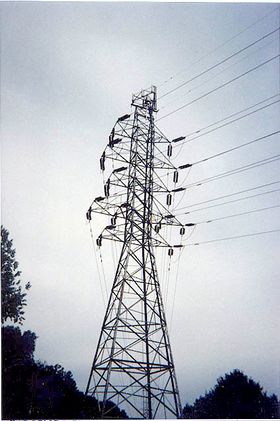Cargo cult

Cargoism is the body of the professed religious beliefs of the official Kiribati Church of Cargo. The Church of Cargo was founded by the Reverend Axolotl Teetotalitalio in the mid 20th century in direct response to a profound revelation involving extra-islandic beings and their supernatural abilities to transport items of great value to his fellow islanders and their supernatural abilities to intervene in mere human affairs.
Origin of Cargoism[edit | edit source]
According to the original teachings of Teetotalitalio, the origin of Cargoism began with the nature of modern goods and services that cannot be directly produced by the inhabitants of any of the Kiribati Islands. In his writings (which are held to be sacred by Cargoists), Teetotalitalio claimed to have been spiritually transported to a gigantic vessel made entirely of a hard grayish substance not entirely unlike silver, which gave it the supernatural ability to float upon the surface of the ocean (something unheard of in even prehistoric Kiribati legends). Teetotalitalio also witnessed firsthand how the supernatural beings of the great silvery vessel made shrines composed of a similar substance to sprout out of the earth overnight. These beings, who dressed all in white and identified themselves as "Sailors", also built strange contraptions of curious workmanship which allowed a form of direct communication between themselves and their fellow supernatural beings dwelling in other vessels, even if those vessels were completely out of visual range from the islands.
The prayer requests offered by the Sailors to their Great God resulted in the almost immediate appearance of prepackaged foodstuffs and material goods of enormous usefulness (presumably created and delivered by the Great God of Cargo for all who worship Him). Sometimes the cargo was delivered in much smaller silver vessels; at other times they appeared in the sky majestically floating down slowly under multicolored canopies when great iron birds were seen flying above.
Types of cargo[edit | edit source]
One of the most useful and entertaining types of cargo freely given to the Kiribatios were hand-held devices which could render a person dead or severely injured at comparatively long distances. These prized items proved to be of such immense value that by just pointing it directly at a Kiribatian could make him favorably disposed to hand over to you his first-born child, his favorite wife, or even his wallet with no questions asked.

Other useful items of cargo were cleverly shaped pieces of cloth which the Sailors called "pants". In the olden times, many a Kiribati native would get mildly sunburnt all over his nether regions just by going about his native business, such as clam diving, nude rollerskating, engaging in sexual intercourse, or spot-welding an automobile chassis. Even though the supply of authentic Sailor pants are in severe decline in these latter days, demand remains unusually high.
Official adoption of Cargoism by Kiribati[edit | edit source]
Teetotalitalio learned all he could about the strange beings during their all-too-brief time of visitation. They told him (using many strange words) that they were fighting a great war in Heaven against the forces of Darkness, and they had to leave the island as soon as their great mission was accomplished. They promised that they would return someday, but were decidedly unclear on the specifics. Nonetheless, Teetotalitalio promised to do all he could to encourage his people to worship the God of Cargo in the proper manner as revealed by the Holy Sailors (who were nudging and winking at each other for some unknown reason just before they departed into the Great Unknown).
During the next twenty years, Teetotalitalio instructed his fellow Kiribati on the construction of additional Sailor temples and prayer-enhancing equipment, using materials from the islands consecrated to that purpose (such as wooden sticks, bamboo stalks, and coconut shells with hemp ropes attached to them). Teetotalitalio also passed on the preferred rituals and prayers associated with the acquiring of new cargo, much of which continues to be used by traditional Cargoists to this day.
Fundamental tenets of Cargoism[edit | edit source]
Existence of CargoGod[edit | edit source]
The fundamental tenets of Cargoism begins with the presumed existence of CargoGod (i.e., the Great God of Cargo). This god, which all other gods and Sailors are subservient to, dwells in a place so remote that only Sailors and the Great Iron Birds of Heaven can reach that far. It is said that those who deny the existence of CargoGod and resort to unsanctioned and unproven methods of economic activity (such as hard work and capital investment) make Him extremely angry for some unfathomable reason, and causes Him to withhold his blessings of future deliveries of cargo.

Moral laws[edit | edit source]
According to Teetotalitalio, the God of Cargo is highly intolerant of the ancient and wide-spread sexual practices of Kiribati (as personally witnessed and thoroughly reviled by the Holy Sailors), such as kissing in public, groping a woman's breasts in public, holding hands in public, or even fucking doggy-style in public. Other previously common practices, such as nude swimming and masturbating whenever you felt like it, are held to be morally wrong, even though they have absolutely nothing to do with sexuality. On the other hand, Cargoism encourages the wholesale consumption of delicious foods dangerously high in saturated fat and cholesterol, which were previously deemed unhealthy and sinful by Kiribati's ignorant ancestors.
Mode of worship[edit | edit source]
The God of Cargo desires that all should worship in approved Temples of Acquisition; or failing that, praise and supplication must be given using the appropriate design of coconut shells tied to bamboo sticks and connected to a wooden box by a length of twisted dried goat intestines (the substitution of insulated copper wiring for intestines are not permitted here). The wooden box must have an assortment of seashells glued on one side and bearing the painted black symbols of "12345" (which are found transcribed in the Testament of Teetotalitalio, page 14). A pair of rabbit ears from a consecrated rabbit nailed to the top of the box is said to be helpful for better transmission and reception.
Interpersonal relationships[edit | edit source]
CargoGod is said to be deeply concerned with the nature of interpersonal relationships. The old and unreliable ways of reasoned discussion and mutual cooperation are now a thing of the past. The proper methods of settling of disagreements, as revealed by Teetotalitalio, now involves lively fistfights interspersed with exaggerated gestures and loud angry articultions, which makes for a great spectacle to interested onlookers.
The uncertain future of Cargoism[edit | edit source]
It has been noted by historians that the Golden Age of Cargoism seems to have ended with the inexplicable disappearance of the Reverend Axolotl Teetotalitalio in 1997; the quality and amount of cargo conjured up by today's modern Cargoists simply doesn't compare with past experience. However, a main branch of Cargoism teaches that, what with the passing of the previous generation, Cargoists of today simply lack the proper faith for CargoGod to deliver on a regular schedule. Other theologians posit that the will of CargoGod is essentially unscrutable, but that He has a future plan for redemption of the Kiribati people and all the money-saving coupons which they have accumulated; and believers must not lose faith in the face of adversity and other facts.
